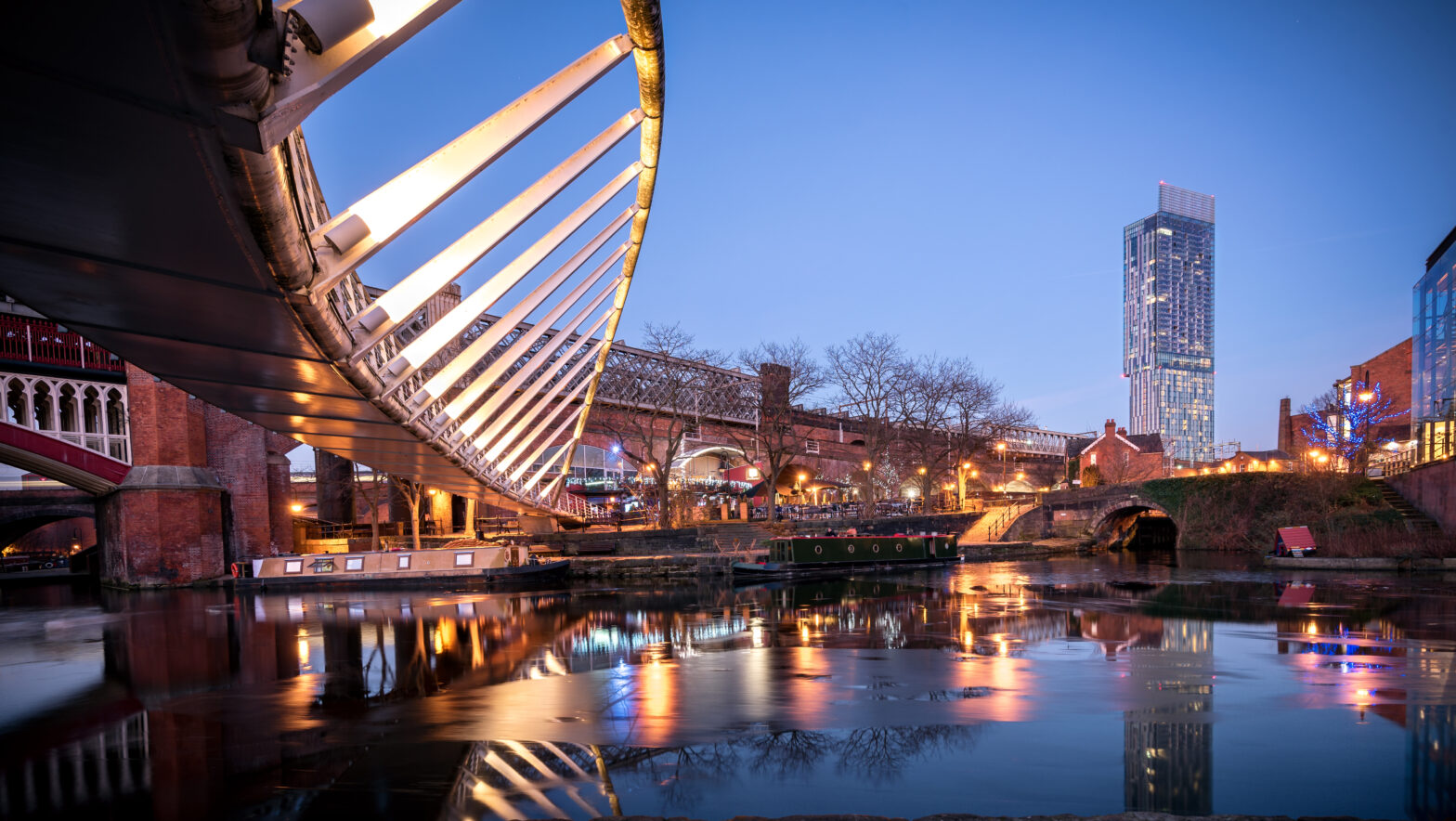As I stare out of my window on a rainy weekend afternoon, I’m trying to take stock of the fact that it’s ten years since I moved to Manchester.
Time has flown – I’ve launched and sold a business, got married and had twins. And as for the city itself, well the weather might not have changed much since 2006 but everything else has.
As the founder of a hosting start-up I moved to Manchester from deepest, darkest West Yorkshire when it became clear that the internet industry wasn’t going to move as quickly there as it was in the North West.
Although still only nascent at the time, it was clear that Manchester was reinventing itself as a digital city. I could feel the centre changing with every trip I made. Everyone in the city was feeling really positive about the part it was going to play in the digital economy and I wanted to be a part of it.
Daniel Keighron-Foster has a lot of love for Manchester
The crux of the city’s digital credentials has always been its datacentre facilities and connectivity to the internet backbone. I chose the University of Manchester’s Kilburn Building datacentre as the home for my first servers. The small and (slightly outdated) datacentre they opened under the Internet Facilitators (IFL) spin-out company was subsequently sold to Telecity which then transformed it as part of the Manchester Exchange (IXManchester). This sprung up amongst a host of other colocation and hosting companies across the city. The datacentre scene continues to grow meaning we can offer first rate infrastructure and cloud services to thousands of businesses locally.
Over the last ten years I’ve seen other monumental changes happen. Manchester has always been known for creativity and innovation so it’s no surprise that it’s become such a haven for start-ups. But it’s the commitment from larger organisations to either retain or move their headquarters to the city that have placed us on the map in the eyes of the wider world – the phenomenal developments at MediaCityUK and Airport City have played a key role in this.
Our digital tech skills are now second only to London in the UK and we’re rivalling creative hubs like Berlin. According to the 2016 Tech Nation Report, Manchester’s digital sector is worth £1.7 billion. This is thanks to initiatives such as Tech Hub and subsequently Tech North bringing support to the industry and helping to raise its profile.
Couple this with other developments that we’ve seen across the city – our football teams have won the Premier League seven times since I moved here, scientists at the University of Manchester won the Nobel Prize for Physics for their work with graphene in 2010 and our arts scene has flourished with the opening of HOME, ten years of the Manchester International Festival and a commitment to invest £110 million into the new Factory arts centre.
Just last month Steve Wozniak, co-founder of Apple touched down in the UK to talk about his entrepreneurial journey – and he chose a packed Manchester Central and the Business Rocks conference as the place to do it.
More people live here too. Not only do we have the biggest student population in Europe but our city centre has seen an influx of young professionals choosing to live close to where it’s at rather than moving out to the leafy suburbs. This helps to bring more investment into the city centre as it becomes a more attractive place to live and work. Ten years ago only the trailblazers were opening their restaurants in the northern quarter where our new office is located. Today you can’t move for bohemian eateries.
In fact, Manchester is a leader when you look at the overall trend of people residing in city centres. In the ten years ending 2011, the number of city centre residents had increased by 83 per cent. Of these residents, almost 60 per cent had a degree and the majority were under 35.
But, just in case we let all of this success go to our heads it’s not all rosy. Despite our high student population and the explosion in the number of start-ups, we’re still losing talent to London and elsewhere. The national skills shortage that’s affecting the IT industry in general is also having an impact in the North – a report released by IP EXPO Manchester concluded that ‘if the North wants to keep growing, technology networking and education initiatives need to be improved.”
But I believe we can keep growing and we can prove ourselves equal to anywhere in the world. We have the spirit of industry behind us, the worker bee as our crest and we never shy away from re-invention. So, thank you Manchester. It’s a pleasure to be on the journey with you. Here’s to the next ten years.
Daniel Keighron-Foster is the managing director and founder of Steamhaus.






